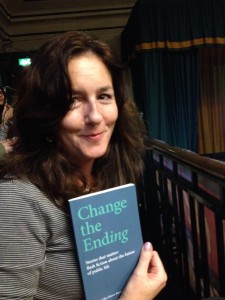The birth of a collection – practical support for the creative process
Change the Ending – our collection of flash fiction about the future of public life – was born in October. It was a moment of joy. Despite the hard labour behind the scenes, seeing it grow and develop was fantastic. I loved the creativity and the collaborative process – working with the writers, taking part myself and the basic act doing of it. Write something, publish something and you’ve made something happen. Who knows what it will become, but it will exist.
The writers in this book are an eclectic bunch who wanted to say different things in different ways, who had differing levels of experience and motivations for writing. Working out who needed what was critical. I’m not someone who has a thousand ideas a day. I have a few ideas (and plenty of random ideas within those ideas) and like to see them through. One of our first-time writers echoed this when he said he wrote his story simply because he said he would. He’d made a commitment, he still had the fear that it might not be any good, but was willing to apply himself. Finishing it was everything. In his case, my job as curator of the project was to sit tight, give him space and, in his own time, he delivered a great story.
There were other people who had important stories to tell, but for various reasons didn’t really want to write alone. There are three stories in the book that grew out of intense, inspiring conversations, where we jointly crafted a story based on their ideas and words, using their ways of expressing a feeling and making sense of a situation.
To make the collection happen, we realised we needed not only to tackle writers’ fears and show the benefits of the project, but to put in place plenty of practical support. Based on my own experience of what had helped me as a writer, here are some examples of what we did:
* We know that creativity, like many other things in life, requires application, effort, persistence and learning the techniques, so using the structure and tight 350-word constraint of flash fiction helped.
* We provided tips on writing flash fiction and links to other websites to help people get going.
* We ran creative workshops to give people story-telling skills and practical approaches – this was very useful for the project but also their organisations.
* We tailored support for writers depending on need, everything from full collaboration to a light touch – and we were delighted that some stories entered gracefully into the world almost fully formed.
* We enlisted the support of a gifted editor with an approach that supported the writers to tell their own stories in their own way, focusing on flow and technical expertise.
Finally – and it’s very much our belief at Shared Press – these are stories that matter. I was very clear about my own intention and, as someone who’s worked most of my life in public services, I was emotionally connected to it. That’s why the invitation to contribute was to people who care about the subject, who care about changing the ending, and the message to our writers was write what you care about. If you care, readers will understand that and engage with it.
Creativity comes from your own unique perspective or relationship with the world and how you choose to explore that is also unique. The diversity in Change the Ending proves this point and it’s what makes the book special. Publishing the collection has meant our writers’ stories are out there, being read, and there’s an added reward in that readers can hold a beautiful book in their hands.
One of the writers passed the book on to his teenage daughter who read it (yes, really!) and actually talked to him about his job – such a rare thing that he said he went to work feeling anything was possible.
The book has already inspired change in me, to push on and write another town hall thriller. Yes, I know it’s not mainstream, but I’m even more motivated to do it after this project. I can only guess at the impact being involved in this project has had on the other writers, but I hope they’re proud – they should be – and willing to have another go, or maybe they’re now expressing their creativity in other ways, because who knows what other new endings that might open up…

